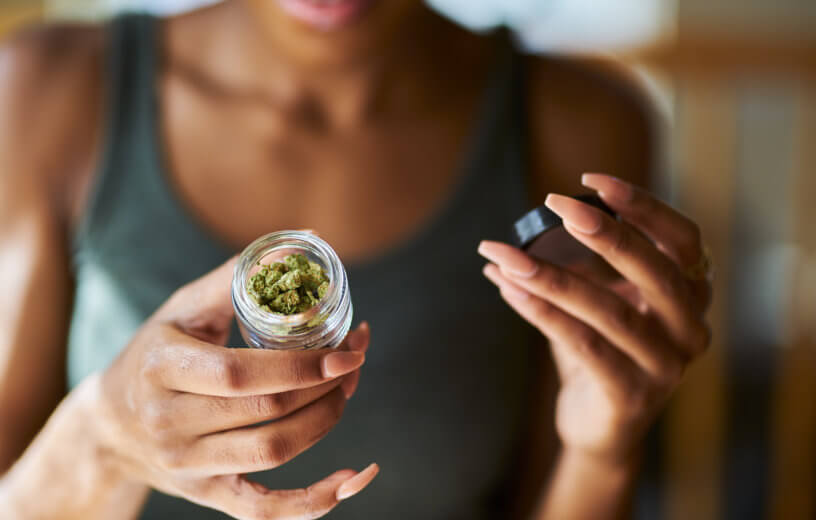New study shows that 80% of regular marijuana users consume cannabis shortly before or after their workouts — and most find it brings numerous benefits.
BOULDER, Colo. — Looking for a little extra kick to your post-workout protein shake? Perhaps adding some marijuana to the mix will do the trick. A shocking new study finds that eight in 10 people use cannabis products before or after their workout, and most say the drug actually makes exercising more enjoyable and even improves their recovery.
The study, conducted by researchers at the University of Boulder, examined the habits of 600 pot users in California, Colorado, Nevada, Oregon and Washington — states that have all legalized recreational cannabis — when it comes to working out and cannabis use. A staggering 82% of participants admitted to using the drug within an hour before or four hours after exercising. The findings certainly go against the decades-old view of stoners as anything but gym rats.
“We were stunned it was that high,” says senior author Angela Bryan, a professor with Boulder’s Department of Psychology and Neuroscience and the Institute for Cognitive Science, in a release. “There is a stereotype that cannabis use leads people to be lazy and couch-locked and not physically active, but these data suggest that this is not the case.”
Yet despite this stereotype, the World Anti-Doping Agency forbids athletes from using the drug in competitions because of it’s potential performance-enhancing capabilities. For example, ultrarunners have been known to use marijuana as an anti-nausea drug and even to rid them of boredom while running.
“There are a lot of interesting data points and hypotheses out there but not a lot of them have been tested,” says Bryan, who sought to look into the theory herself.
She polled an additional 345 people who use cannabis with exercise (“co-users”) and discovered 67% use it both shortly before and after a workout — though participants were more prone to an after-workout weed session. Their usage had nothing to do with nausea or boredom though. Seven in 10 co-users say cannabis boosted the enjoyment of exercising, while more than half (52%) say it motivated them to work out. Another 78% agreed it aided their recovery efforts.
Cannabis is a known anti-inflammatory, the researchers say, but there may be more to the mental benefits.
“There is evidence to suggest that certain cannabinoids dampen pain perception, and we also know that the receptors cannabis binds to in the brain are very similar to the receptors that are activated naturally during the runners high,” explains co-author Arielle Gillman. “Theoretically, you could imagine that if it could dampen pain and induce an artificial ‘runner’s high,’ it could keep people motivated.”
As far as any performance-enhancing capabilities, only 38% of co-users reported any type of actual boost in output during their workout.
The authors hope that future research will seriously take into consideration the possibility that marijuana could be a valuable aid for gym-goers battling aches and pains.
“As we get older, exercise starts to hurt, and that is one reason older adults don’t exercise as much,” says Bryan. “If cannabis could ease pain and inflammation, helping older adults to be more active that could be another benefit.”
In fact, preliminary results from another BU study that looks at older individuals who use cannabis regularly shows that users exercised more than non-users.
In the meantime, Bryan does not suggest people being using cannabis as a workout supplement, despite the study’s conclusion that there may be benefits to exercise.
“The evidence is not there yet,” she says. “But I am also not convinced it is harmful.”
The study is published in the journal Frontiers in Public Health.
